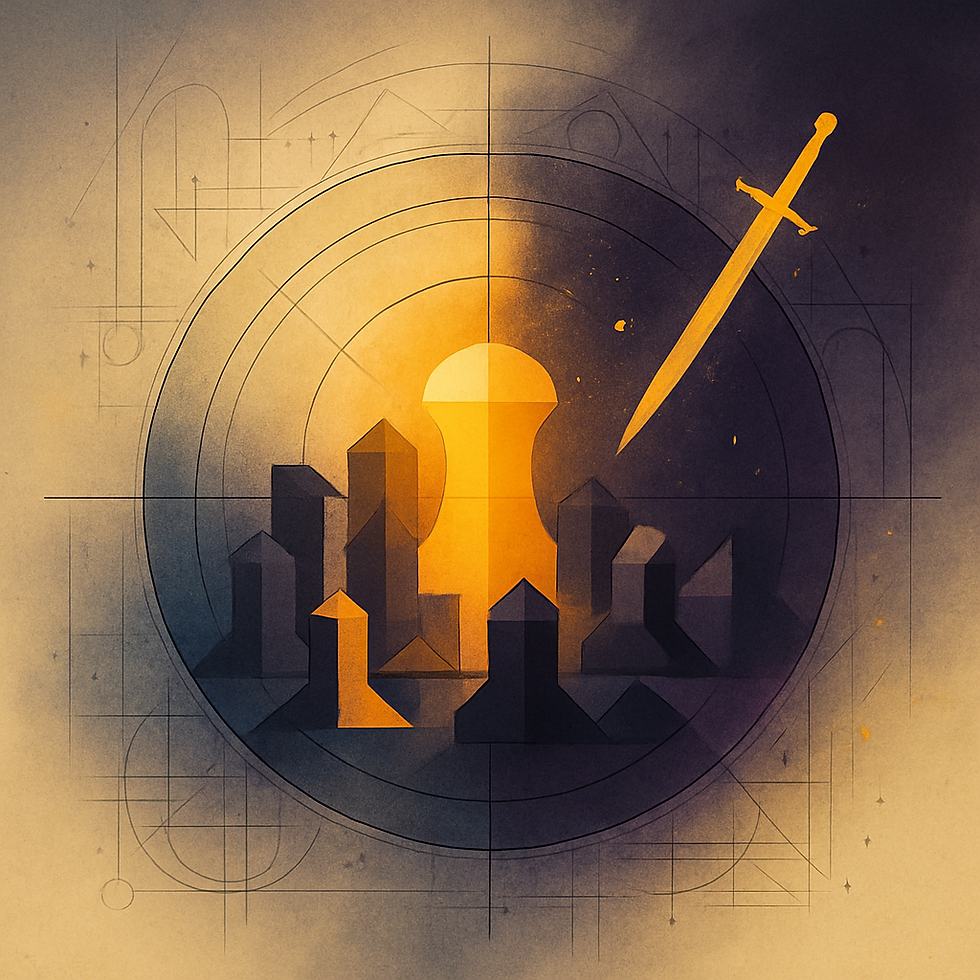If I Could Time Travel: Galileo's "Eppur Si Muove"
- rabie soubra
- Oct 1, 2025
- 3 min read
If I could time travel, I would go to Rome in 1633 to witness the moment after Galileo's trial, to see if he really muttered those famous words: "Eppur si muove"—and yet it moves.
I want to be there when a seventy-year-old man, having just been forced to kneel before the Inquisition and publicly deny everything he knows to be true, walks away from that humiliation and whispers his defiance into history. Whether he actually said those words or whether they were invented later by people who needed him to have said them, that moment represents the collision between two incompatible forces: scientific truth and institutional power.
Picture the scene: Galileo has just recanted his life's work under threat of torture and execution. He's declared that the Earth stands still at the center of the universe, even though decades of observation through his own telescopes have shown him otherwise. He's signed documents admitting he was "vehemently suspected of heresy" for daring to suggest that the Earth moves around the Sun.
The Church has won. They've forced one of the greatest scientific minds in history to publicly deny observable reality. They've demonstrated that institutional authority can compel even genius to submit, that truth itself can be bent to accommodate power.
But then—if the story is true—Galileo mutters under his breath: "And yet it moves."
I want to witness that moment of quiet defiance, that refusal to let power completely erase truth. Even in submission, even in defeat, even facing house arrest for the rest of his life, something in him cannot accept the lie he's been forced to tell.
This is the moment when scientific truth confronts religious authority and discovers they cannot coexist. The Church demands that reality conform to scripture and tradition. Science observes what actually is, regardless of what anyone wants it to be. Galileo stands at the breaking point between these worldviews, forced to choose between his safety and his integrity.
The beauty of "Eppur si muove"—whether he said it or not—is its perfect encapsulation of that impossible position. Officially, he's submitted. Publicly, he's recanted. But privately, he refuses to unsee what he's seen or unknow what he's learned. The Earth moves whether the Inquisition approves or not, whether admitting this costs him everything or not.
I want to be there to see if intellectual courage can survive institutional intimidation, if truth can persist even when speaking it becomes dangerous. Can a man who has just been broken by power still maintain his grip on reality when no one is watching?
The moment also represents something larger about how knowledge advances despite opposition. The Church could force Galileo's silence, burn his books, and keep him under house arrest until his death. But they couldn't make the Earth stop moving. They couldn't erase the observations he'd made or invalidate the mathematics he'd developed.
Truth has this stubborn quality—it persists regardless of who accepts it. Galileo's telescopes would eventually prove him right, even though he wouldn't live to see his vindication. The Earth would keep orbiting the Sun whether the Church acknowledged it or not.
I want to witness the exact moment when this realization crystallizes for Galileo. He's lost the battle but knows he's right about the war. Power can force him to lie, but it cannot change the fundamental nature of reality.
Whether those words were actually spoken or invented by later admirers doesn't really matter. The truth is that someone had to stand at the intersection of observable reality and institutional dogma and choose which one to believe. Galileo made that choice, even when it cost him everything.
"Eppur si muove" represents the quiet defiance of anyone who refuses to pretend that power can change facts. It's the whispered acknowledgment that reality exists independent of authority's approval, that truth will outlive the institutions that try to suppress it.
I want to be there for the moment when intellectual courage proved stronger than institutional intimidation, when an old man facing the most powerful organization in Europe couldn't stop himself from acknowledging what he knew to be true, even if only under his breath.
And yet it moves.






Comments